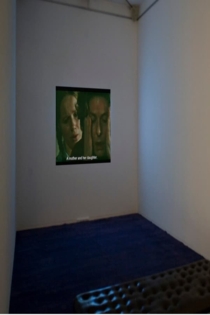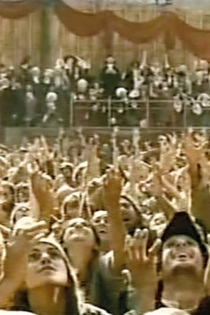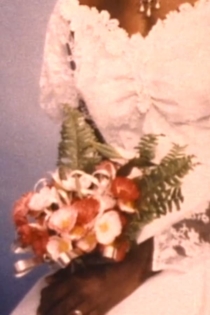
Tracey Moffatt
1960 (65 лет)Nice Coloured Girls
Tracey Moffatt
Gayle Mabo, Cheryl Pitt
Nice Coloured Girls is a short film classic by Tracey Moffatt, one of Australia's foremost visual artists. Three Aboriginal women cruise through Kings Cross and pick up a 'captain' (a drunken white man). They encourage him to spend his money on them and to drink until incapacitated while they steal his wallet and race off to catch a cab, self-satisfied. Nice Coloured Girls contrasts the relationship between Aboriginal women and white men in the past and present.
Nice Coloured Girls
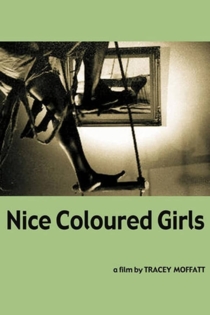
Night Cries: A Rural Tragedy
Tracey Moffatt
Marcia Langton, Agnes Hardwick
A short film about the relationship between an Aboriginal daughter and her white mother. The daughter, now the sole carer of her dying mother, dreams of far away places, the haunted look in her eyes loaded with a sense of what could have been. Famous Aboriginal singer, Jimmy Little, sings 'Royal Telephone', evoking the presence of Christianity and its role in the assimilation of Aboriginal people. The final scene sees the daughter lying in a foetal position next to her mother, crying. Assimilation, then, can be understood as a pain experienced by both the Aboriginal daughter as well as the white mother.
Night Cries: A Rural Tragedy
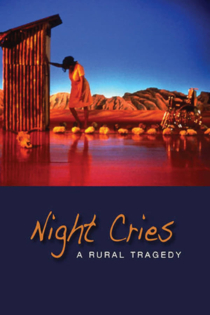
Bedevil
Tracey Moffatt
Lex Marinos, Tracey Moffatt
Three stories of the supernatural are recounted in this anthology. Rick, an Aboriginal boy living near a swamp on Bribie Island, is haunted by an American solider who drowned in quicksand. Ruby and her family live in a house near long-abandoned train tracks, which still carry ghostly apparitions. A landlord has trouble evicting the tenants of an old warehouse: a couple that's been dead for years
Bedevil
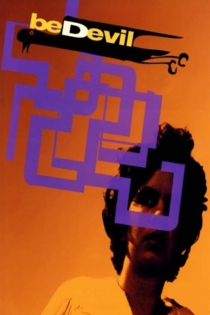
Heaven
Tracey Moffatt
This playful video from famed director and photographer Tracey Moffatt turns the tables on traditional representations of desire to examine the power of the female gaze in the objectification of men’s bodies. HEAVEN begins with surreptitiously taped documentary footage of brawny surfers changing in and out of bathing and wet-suits. While the soundtrack switches between the ocean surf and male chanting, Moffatt moves closer to alternately flirt with and tease her subjects, who respond with a combination of preening and macho reticence.
Heaven
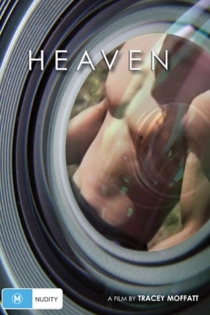
Lip
Tracey Moffatt
It is Hollywood’s favorite role for Black women: the maid. Sassy or sweet, snickeringly attentive or flippantly dismissive, the performers who play them steal every scene they are in, and Tracy Moffatt’s entertaining video collage reveals the narrow margin Hollywood has allowed Black actresses to shine in. But shine they do.
Lip

Other
Tracey Moffatt
Tracey Moffatt’s fast paced montage videos compile scenes from film and television programs selected in response to a particular theme or coding. This is the final work in a suite of 7 videos made over the last decade; the previous works include ‘Lip’ 1999, ‘Artist’ 2000, ‘Love’ 2003, ‘Doomed’ 2007, ‘Revolution’ 2008 and ‘Mother’ 2009. 'Other' is one of the most mesmerising of the series as it edits together scenes of interracial encounters. It opens with first contact sequences, films in which the beach and the shallow waters are a zone of encounter between ships and canoes, between Europeans and non-Europeans. It then moves to images of looking, of two different peoples meeting for the first time and appraising each other visually. As imagined by Hollywood and TV directors, this is a moment of both curiosity and desire, where glances become lingering and erotically charged.
Other

Guniwaya Ngigu
Madelaine McGrady, Tracey Moffatt
We Fight is a rare documentary about Aboriginal resistance to the Brisbane Commonwealth Games of 1982. Hundreds of activists occupied Musgrave Park in South Brisbane as a campsite and performance area and fought against the Games and the racist government of Joh Bjelke-Petersen.
We Fight
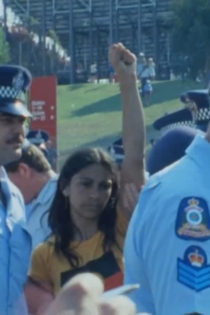
Love
Tracey Moffatt
In ‘Love’, the subtleties of first desires to climactic scenes of impassioned dialogue and action, to betrayal, disgust and violence that have played out over the history of film are ripped from original contexts and edited into a repetitive staccato rush, regurgitating, for our entertainment, horror and critique, the stereotypical, hyperbolic trajectory of (heterosexual) love. Through this process Moffatt unites the graphic punch and suggestiveness of the still image with the satisfaction of a complete movie narrative. In the end, its only a movie. ‘Love’ embodies Moffatt’s desire to create work that has an ‘international look’ and deal with ‘universal predicaments’. 'Love' is both parody and pastiche, critical comment, and wryly humorous.
Love
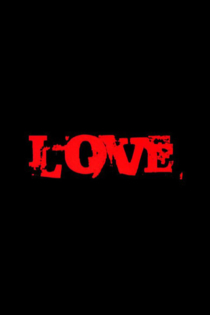
Vigil
Tracey Moffatt
Close-up stills of white Hollywood stars – including Elizabeth Taylor, Cary Grant, Julie Christie and Donald Sutherland, looking aghast and horrified – are intercut with news shots of boats crowded with refugees. Peering through slatted blinds and homing in with binoculars, the wide-eyed and troubled movie characters seem to survey crowded decks. The images of the refugees are manipulated, cropped, recoloured, sometimes reduced to almost abstract blobs. Vigil is short, terse and, with its increasing tempo, extremely powerful. The more you watch, the worse it gets. Stuck in their roles and behind their windows, the stars act out their emotions. Meanwhile, genuine human misery goes on, visibly manipulated for our consumption.
Vigil

Artist
Tracey Moffatt
Moffatt's Artist is a collection of clips from movies and television programs that depict artists at work, at play and in the act of creation. By showing the particular bias of television and cinema to what the role of an artist apparently means to modern society, the film reflects the sometimes uninformed, sometimes humorous view of society towards artists today.
Artist

Mother
Tracey Moffatt
Mother compiles clips of mother figures from classic Hollywood cinema and television dramas. The figures range from the Virgin Mary and Mother Courage, to characters from Maude (1972–78), Aliens (1986), Imitation of Life (1959), and American Gangster (2007). The characters play out scenes of care, loss, emotional manipulation, abandonment, and grief. The intense relationships between mothers and daughters are especially prominent.
Mother
